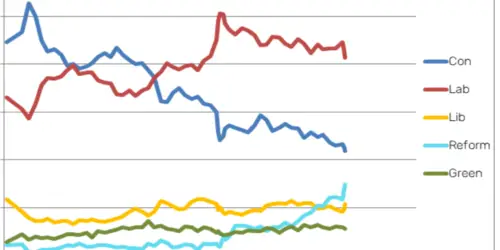Which Party is Best for the UK Motor Industry?
With the upcoming UK election, the future of the motor industry, both OE (original equipment) and aftermarket, hangs in the balance. Each political party offers a different roadmap for the sector, and it’s crucial to understand their policies to determine which direction might be best for your business. Here’s a breakdown of the main parties’ positions:
Conservative Party
The Conservatives have long positioned themselves as the party of business, advocating for lower taxes and fewer regulations. They aim to keep the UK competitive globally by supporting innovation and investment in the automotive sector. Their focus on maintaining a business-friendly environment could benefit manufacturers and aftermarket suppliers. However, their stance on environmental regulations can be mixed, potentially creating uncertainty for businesses transitioning to greener technologies.
Labour Party
Labour’s vision centres on a green revolution, with significant investment in electric vehicles (EVs) and sustainable infrastructure. They propose robust policies to support the transition to zero-emission vehicles, which could be a boon for businesses involved in the EV market. However, increased regulation and potentially higher taxes could be challenging for traditional automotive sectors. If your company is looking towards the future of green tech, Labour’s policies might provide the necessary support.
Liberal Democrats
The Lib Dems share Labour’s enthusiasm for green policies, advocating for substantial investment in EVs and renewable energy. Their approach includes incentives for green innovation and infrastructure, aiming to make the UK a leader in sustainable transport. This focus is excellent for businesses already adapting to or investing in new technologies. However, similar to Labour, their regulatory measures might challenge traditional motor industry sectors.
Green Party
As expected, the Green Party prioritizes environmental sustainability above all. Their policies strongly support reducing fossil fuel use, increasing reliance on public transport, and swiftly transitioning to electric vehicles. For businesses in the green tech sphere, the Green Party’s policies offer significant opportunities. However, their stance on reducing overall car usage might not align well with the interests of the broader motor industry, especially those dependent on traditional vehicles and fuels.
Reform Party
“The Reform Party supports economic freedom, lower taxes, and limited government intervention.”Their business-friendly approach could create a favourable environment for the traditional motor industry, allowing for flexibility and growth without heavy regulatory burdens. However, their less stringent stance on environmental issues might delay the industry’s transition to greener technologies, which could be a drawback in the long run as global trends shift towards sustainability.
Conclusion
As the election approaches, it is essential to remember that each political party offers policies that could impact the UK motor industry differently. The Conservatives focus on creating a business-friendly environment, the Labour and the Lib Dems advocate for a green revolution, the Greens aim for a drastic reduction in fossil fuel use, and the Reform Party emphasizes economic freedom and minimal regulation.
It is essential to weigh these policies against your business interests and long-term industry trends. Understanding each party’s stance will help you make an informed decision at the polls, whether based on present dynamics or future green technologies.




